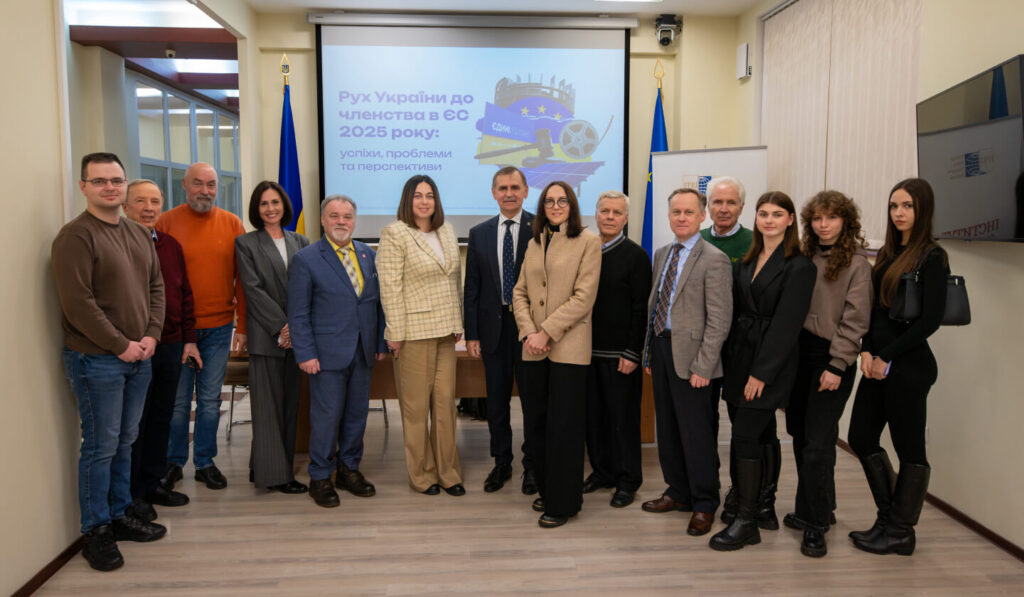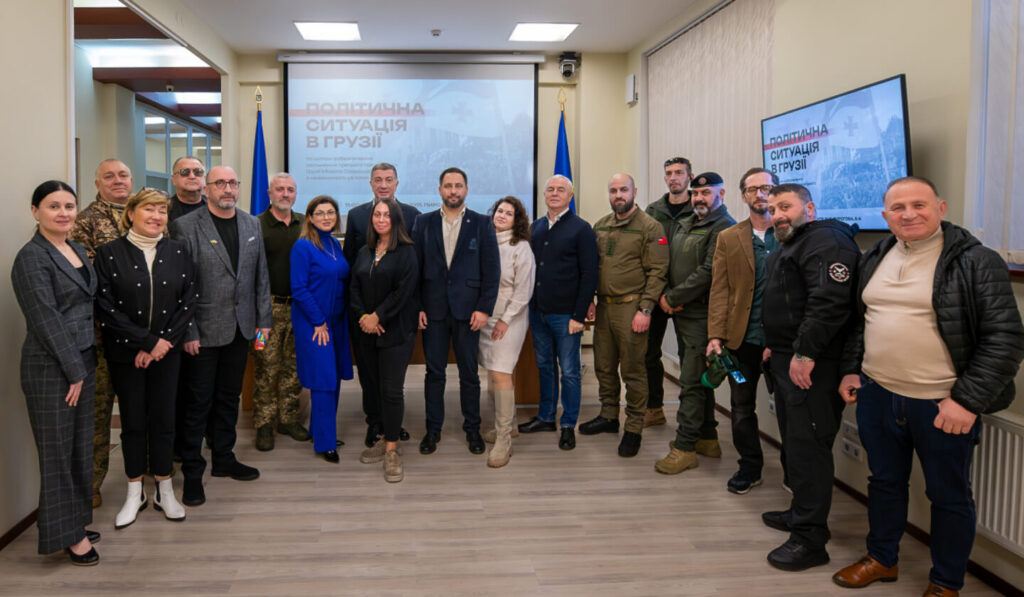On Wednesday, 23 April 2025, the GDIP Media Center hosted a meeting of diplomatic representatives with students of the Young Diplomat School from Kharkiv within the framework of Diplomatic Greetings, a joint project of the Directorate-General for Rendering Services to Diplomatic Missions and OUTLOOK Project.
Pavlo Kryvonos, Director-General of the GDIP, greeted the young generation of the future Ukrainian diplomats in the Media Center. In his speech, he introduced the structure and activities of the enterprise to the young people, shared interesting stories about the opening of the first foreign embassies in Kyiv, spoke about the peculiarities of shaping Ukraine’s diplomatic image in the eyes of heads of diplomatic missions and communication strategies for negotiating with foreign delegates, and stressed the importance of the GDIP’s volunteer activities aimed at supporting the soldiers of the Armed Forces of Ukraine in the russian-Ukrainian war:
‘We volunteer and support the National Guard brigade that protects embassies. Our team helps Ukrainian defenders as much as we can’.
The meeting was continued by the Military Attaché of the Islamic Republic of Pakistan in Ukraine, Brigadier General Muhammad Jawad Ahmed. He began his speech by telling the audience about Pakistan and its similarities with Ukraine, particularly in agricultural practices, and the development of bilateral relations. The speaker also gave practical advice to the students of the Young Diplomat School on dealing with the various challenges that a diplomat faces at the beginning of their diplomatic career, and recommended that they be flexible, able to convey the necessary information, take into account the general situation in the host country and more:
‘Wherever you are, you have to understand and take into account the peculiarities of the environment in which you work. Another thing related to this is the cultural way of thinking. Diplomacy is more about the human interface, which is derived from social traditions. After all, different cultures react differently to certain things. What is acceptable in one culture may be unacceptable in another. And this is one of the biggest advantages of being a diplomat, because you learn a lot of things. So you need to be mentally flexible, and in the course of your duties you will cope with any challenges and their variations.’
Another significant highlight of the meeting with future diplomats was the speech by Mateja Prevolšek, Ambassador Extraordinary and Plenipotentiary of the Republic of Slovenia to Ukraine. Ms Prevolšek spoke about the establishment and development of diplomatic relations between Slovenia and Ukraine, mutual support after the recognition of the independence of both countries, Slovenia’s experience in the European integration process, the benefits of being a member state of the European Union and NATO, as well as shared her experience of working at the EU Delegation and described all the processes that the country goes through when joining the European Union:
‘For the European Union, respect for human dignity, freedom, democracy, equality, the rule of law, human rights and, in particular, due to the diversity of Europe, minority rights are important. As for the enlargement of the European Union, you may know that for some time there was a debate on this issue because the EU had good relations with the Eastern Partnership countries, including Ukraine, as well as with the Western Balkan states. However, due to various political problems, these countries did not fulfil the conditions for joining the EU. For Slovenia, the most difficult was the pause in the Western Balkans because we used to be part of this region. But everything changed when the war in Ukraine broke out. We realised that if we, Ukraine and the EU do not do everything possible to integrate Ukraine into the EU, political stability will not be achieved here.’
Moreover, the Ambassador also described the steps that Ukraine still has to take on its way to EU membership. At the end of her speech and after Q&A session, Ms Mateja conducted an interesting quiz test for the participants to check their understanding of the information received during the meeting. Based on the results of the correct answers, the students of the School of Young Diplomats received memorable gifts from the Embassy of Slovenia.
As part of the project, the students of the Young Diplomat School also met with Håvard Hovdhaugen, HEKS/EPER Director in Ukraine, and representatives of the American Councils for International Education in Ukraine, including project coordinator Yuliia Solodko, assistant of the Exchange for Internship programme for youth civic engagement Yaroslav Morozov, and advisor to the EducationUSA Ukraine Information and Advisory Centre Yana Ovcharenko.
All speakers made a positive impression on the young generation of future diplomats. The active discussion, sincere emotions and feedback after each lecture vividly show the importance of such events for strengthening bilateral cooperation and fostering a new generation of diplomats. The interesting networking was concluded with the joint photo with professional diplomats.












